Drug Addiction Treatment in Fitchburg
Fitchburg drug rehab for in-patient and out-patient drug detox and alcohol treatment. Addiction and chemical dependency recovery program near Fitchburg MA. Drug and Alcohol Rehabilitation techniques used in our Worcester rehab and detox centers near Fitchburg. Programs for drug and alcohol abuse that include inpatient and outpatient recovery for addiction are explained as well as the benefits and drawbacks of both. Many health insurance providers will pay for alcohol and drug rehab. Call us to find out what options are available for you.
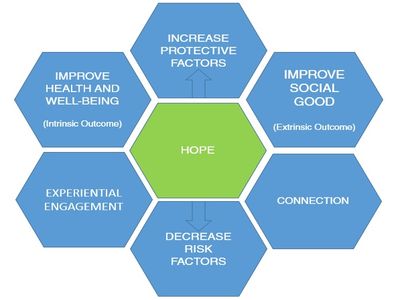
Mental Dependency – What Is Psychological Dependency?
The term psychology is generally indicated to refer to behavioral procedures that connect to the emotions or the mind. The term mental dependency is normally meant to define the emotional as well as mental procedures that are associated with the advancement of, as well as healing from, a compound use problem or chemical dependency.
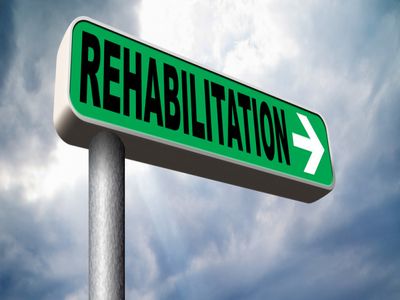
Substances connected with Mental Dependency
The basic observation right here is that compounds of abuse are related to both mental as well as physical aspects of dependency; nevertheless, numerous sources divide the elements of the development of a material use problem as well as the withdrawal process right into materials that are associated with withdrawal symptoms that are primarily mental in nature. Usually, these substances consist of:
A lot of stimulants, consisting of drug as well as Ritalin
Many hallucinogenic medications, such as LSD
Marijuana products (although there is placing proof that there might be a considerable physical process of withdrawal that takes place in chronic users of marijuana items).
Lots of inhalant items.
Several psychotropic medications, such as antidepressant medications.
Reward of mental reliance
One essential distinction that can be made relating to the distinction between medications that are taken into consideration to cause physical versus psychological dependency is that the withdrawal process from several of the medicines that are taken into consideration to be strong prospects for physical dependency, such as alcohol, benzodiazepines, as well as barbiturates, can result in the growth of potentially fatal seizures. This condition does not typically occur with withdrawal from opiate medications, which are likewise taken into consideration to be very physically addicting. The recovery process for individuals who have actually created material use disorders to these compounds should be purely monitored by a doctor or psychiatrist who focuses on addiction medication to recognize any possible seizure task and quickly resolve it.
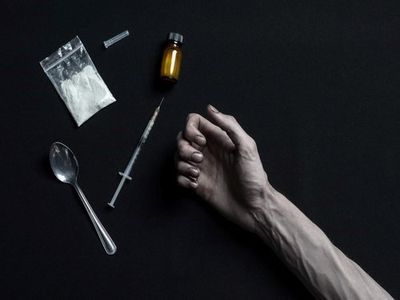
Options for Treatment in Fitchburg
Drugs
A number of medications have been discovered to be efficient in dealing with addiction to opioids, alcohol, or pure nicotine in adults, although none of these medicines have actually been approved by the FDA to deal with teenagers. Just preliminary proof exists for the efficiency as well as safety of these medications in people under 18, and also there is no proof on the neurobiological influence of these drugs on the establishing mind. Despite the loved one lack of evidence, some health and wellness treatment carriers do make use of medicines “off-label” when treating teens (specifically older teenagers) that are addicted to opioids, nicotine, or (much less typically) alcohol. Newer compounds remain to be researched for possibly dealing with compound usage conditions in grownups and teens, but none other than those noted here have revealed conclusive outcomes.
Note that there are presently no FDA-approved medicines to treat addiction to cannabis, drug, or methamphetamine in any type of age group.
Buprenorphine minimizes or removes opioid withdrawal signs, including drug food cravings, without producing the “high” or unsafe adverse effects of heroin as well as various other opioids. It does this by both turning on and also blocking opioid receptors in the mind (i.e., it is just what is known as a partial opioid agonist).

Methadone also avoids withdrawal signs and symptoms as well as reduces yearning in opioid-addicted people by activating opioid receptors in the brain (i.e., a full opioid agonist). It has a lengthy background of usage in therapy of opioid reliance in adults as well as is readily available in specifically certified methadone treatment programs. In choose instances and in some States, opioid-dependent teens between the ages of 16 and 18 might be eligible for methadone therapy.
Residential Drug Rehabilitation in Fitchburg
A research study in the journal Dependency reveals that individuals who receive help with recovery from addiction are more probable to stay in recovery for longer durations compared to those who don’t get treatment. Sixty-two percent of those who had specialist help in treating their addiction remained in recovery for three years after treatment, as compared to only 43 percent of those who really did not obtain therapy. In addition, 57 percent of those who made it 3 years were still without the compound after a total amount of 16 years. This reveals that getting specialist treatment is essential to getting to the most effective end result.
Residential Fitchburg drug rehab particularly is typically a lot more valuable because it calls for that the person stay in therapy for the amount of time necessary to impact change.
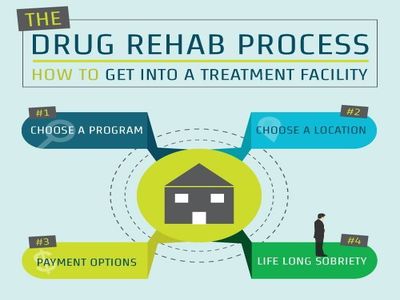
In the NIDA article it is mentioned that a vital component of drug dependency therapy is staying in treatment long enough to complete the various parts of the program, due to the fact that this allows individuals to emerge with the highest degree of confidence in their freshly learned skills and also tools for continuing to be in healing. Due to this, each of the elements of a high-quality treatment program works best when it is made to help people survive the entire treatment procedure.
Residential rehabilitation gives 24-hour care in a setup where the emphasis is aiding individuals achieve as well as preserve healing from drug addiction. As a result of this, these programs are able to supply a breadth of solutions that are more probable in order to help clients develop capabilities as well as devices to stay in recovery well after leaving the program. These consist of:
Medically supported detoxification as well as withdrawal, if required.
Medically sustained upkeep treatment, if needed.
Specific treatments, such as Cognitive Behavior Modification.
Family members or couples therapy.
Building skills as well as devices that are required for life message treatment.
Follow-up care after the formalized program ends.
Outpatient Rehab
Outpatient rehab enables clients to live in the house and also take part in therapy at an outpatient center during the daytime. This sort of program pays for people a lot more flexibility in treatment, giving customers the capacity to maintain a task and keep up with day-to-day responsibilities at home. Those simply starting outpatient care could require everyday sessions with a specialist or clinical team, while those more along in healing (or with much less serious dependencies) might succeed with part-time sessions once or twice weekly.
Outpatient programs generally last anywhere from one to three months, as this is the home window of time where those in recovery are most vulnerable to relapse. The size of time a customer invests in outpatient care depends upon their development in recovery, which takes into account their mental stability as well as physical health.
An outpatient drug rehab program provides drug and alcohol therapy sessions that could be arranged throughout numerous times throughout the week. This routine permits individuals to continue with their routine duties and also proceed living in your home, however they are called for to explore therapy at their assigned times for counseling and medication.
Healing
Recuperation is a goal of alcohol treatment, as well as recovery-oriented systems of treatment are being developed to support that goal. People that are “in recovery” understand what it implies to them as well as just how vital it is in their lives. They require no official interpretation, but for the public and those who study, examine, and create plans concerning dependency, healing is a principle that could in some cases seem unclear.
Essentially, recuperation is a complex as well as vibrant process encompassing all the positive benefits to physical, psychological and also social wellness that can happen when people with a dependency to alcohol or medications, or their member of the family, get the aid they need.
Counseling
Therapy is a vital part of substance abuse therapy for lots of people. Cognitive behavior modification, household therapy, and also other treatment approaches could assist people recuperating from opioid dependency stay clean.
Twelve-step Programs
The 12-Step approach spearheaded by Alcoholics Anonymous is utilized by about 74 percent of treatment. Many dependency therapy programs use options to 12-Step technique for those that like an even more secular structure for treatment.
SMART Recovery
SMART Healing is an abstinence-based, not-for-profit company with a reasonable self-help program for individuals having troubles with drinking as well as making use of. SMART Recuperation is not a spin-off of Alcoholics Anonymous. When you succeed at following our method, you could graduate from the program, or you might remain around to help others.
Client-centered methods
In client-centered substance abuse therapy, you could aid determined things about your drug dependency treatment strategy consisting of:
- The pace at which you progress.
- The size of your stay.
- The goals of your program.
Alongside expert team the addict determines precisely what they wish to get out of their stay. Every week, you and your personal therapist will review your medicine dependency treatment and also decide whether or not you are reaching your goals, falling short or exceeding them and also adjust your therapy strategy as necessary. The partnering is actually essential here- your goals are your roadmap with treatment.
Psychoanalysis
The psychoanalysis sight recommends dependency is essentially a disorder of self-regulation. Dependency is explained as a defensive approach to avoid feeling of helplessness or powerlessness. The dependency trouble stops the individual from recognizing about her distress, as well as the advancement of emotional capability to self-soothe.
Regression avoidance
A significant cognitive-behavioral technique to dependency healing and also treatment has been Alan Marlatt’s (1985) Regression Prevention strategy. Marlatt explains four psycho-social procedures relevant to the addiction and relapse procedures: self-efficacy, end result spans, acknowledgments of origin, and also decision-making processes. Self-efficacy refers to one’s capability to deal properly and also successfully with high-risk, relapse-provoking situations. Outcome spans describe a person’s expectations about the psychoactive effects of a habit forming substance. Acknowledgments of causality describe a person’s pattern of beliefs that regression to drug use is a result of inner, or rather outside, transient causes (e.g., allowing oneself making exceptions when faced with just what are evaluated to be uncommon conditions). Decision-making procedures are linked in the relapse procedure. Compound use is the outcome of numerous choices whose cumulative impacts lead to intake of the intoxicant. Marlatt stresses some choices- referred to as apparently pointless decisions- could appear irrelevant to regression however may actually have downstream effects that position the customer in a high-risk situation.
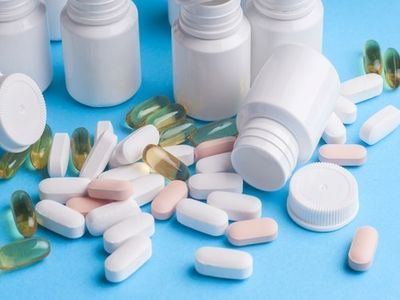
As an outcome of hefty road congestion, a recouping alcoholic could determine one mid-day to leave the highway and traveling on side roadways. If this person is able to use effective coping methods, such as sidetracking himself from his desires by transforming on his preferred music, then he will stay clear of the regression danger (COURSE 1) and also increase his efficacy for future abstinence. If, however, he lacks dealing mechanisms- for instance, he might start pondering on his cravings (PATH 2)- then his efficacy for abstaining will decrease, his expectations of positive end results will raise, and also he could experience a gap- a separated return to compound intoxication.
Dual Diagnosis – Addiction and Mental Health
When a client is detected with both a substance abuse disorder as well as a mental wellness concern, after that it is called a Double Medical diagnosis. Common psychological wellness disorders that have the tendency to occur along with dependency consist of:
- Anxiousness conditions.
- Moderate to severe anxiety.
- Individuality problems.
- State of mind conditions.
- Schizophrenia.
As they come to be a lot more as well as much more overwhelming, the individual may try to “treat” those signs and symptoms by utilizing various medicines. On the other hand, somebody dealing with an eating problem may try to enhance their weight loss efforts by abusing stimulant medicines like cocaine or crystal meth.
In other instances, the medicine dependency comes first and as a result of chronic substance abuse, mental health issues can establish later on due to that drug use alters mind function over time.
Sober Living House
Sober living residences are team homes for those recuperating from an addiction. Most of these homes are privately owned, although some team homes are had by services and also might also be had by charity companies. Residences are typically located in quiet areas to assist guarantee a serene setting for individuals in very early recuperation.
These types of homes are various from rehab facilities; rehab centers usually supply an even more extensive recuperation experience as well as offer residents much less flexibility. Locals could also be subject to routine medicine testing to demonstrate continuous soberness.
